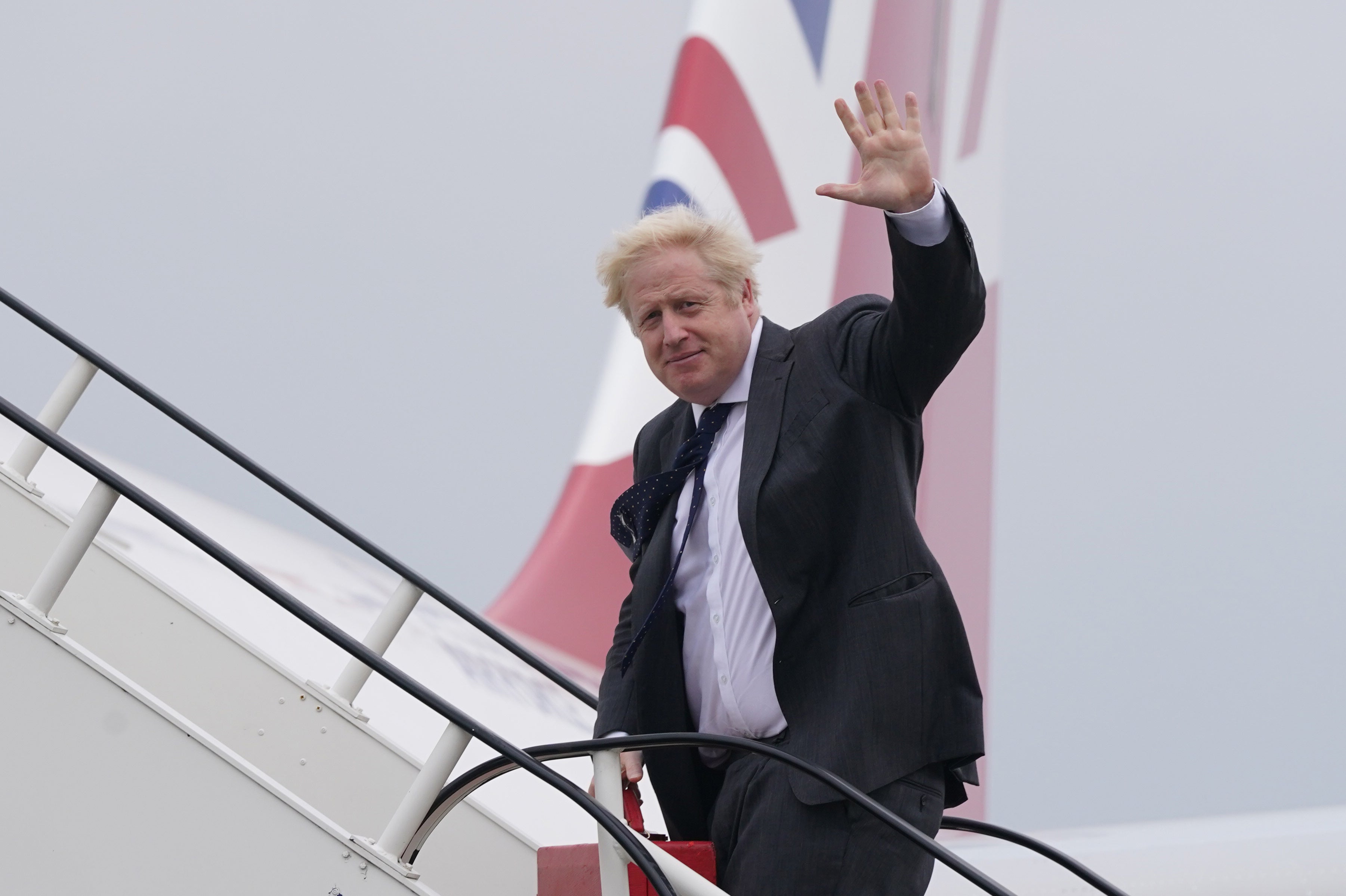Does Boris Johnson’s plan to persuade rich countries to help poorer nations reach net zero go far enough?
Ahead of Cop26, the prime minister is hoping to raise cash to help vulnerable nations slash their emissions. Climate Correspondent Daisy Dunne examines whether his plans can deliver


With fewer than 50 days to go until Cop26 – the pivotal global climate summit taking place in Glasgow, Boris Johnson is moving into action.
He told reporters travelling with him to the UN general assembly in New York that his main goal for this week is to persuade other wealthy countries to come up with cash to help the poorest slash their greenhouse gas emissions.
The prime minister on Monday told leaders at the UN that developed countries have “collectively failed” to live up to promises first made in 2009 to give poorer nations $100bn (£73.2bn) a year by 2020 to help them cut their emissions and adapt to escalating climate impacts.
When the climate emergency is discussed in international forums, “everyone nods and we all agree that something must be done”, said Mr Johnson.
But he added: “I’m increasingly frustrated that the ‘something’ to which many of you have committed is nowhere near enough.
“It is the biggest economies in the world that are causing the problem, while the smallest suffer the worst consequences.”
The issue of “climate finance” has long been a thorny subject at international climate negotiations. Developing nations argue that rich countries, which have caused the majority of emissions since the start of the industrial era, should pay to help them both tackle and adapt to rapidly rising emissions.
But a report from the Organisation for Economic Co-operation and Development (OECD) released last week found that rich countries mobilised just $79.6bn (£58.3bn) in climate funding in 2019 – 2 percentage points up from the year before but still far short of the 2020 target.
And an Oxfam analysis released on Monday suggests that wealthy countries will continue to miss the mark for the next five years. The review of countries’ current plans estimated that rich countries will only provide $93-95bn (£68-70) in climate finance by 2025 – meaning poorer countries will miss out on up to $75bn (£55bn) in total.
Developed countries must be persuaded to urgently set out “firm commitments” on climate finance ahead of Cop26, notes Jennifer Larbie, advocacy and policy lead at Christian Aid UK.
“Time is running out for the UK and other wealthy nations to deliver on the promised $100bn (£73.2bn) a year for climate finance before the Cop,” she tells The Independent.
She says that cancelling outstanding debts owed by poorer nations is one of the options available to developed counties to release more money to tackle the climate crisis.
“This is one of the fastest ways to make more money available to deal with the horrors of climate devastation facing countries and communities on the frontline of the crisis”, she adds.
Kate Blagojevic, Greenpeace UK’s head of climate, adds that the UK’s efforts to lead a climate funding push could be scuppered by its own decision to slash the foreign aid budget earlier this year.
“The prime minister’s calls for rich nations to finally meet this commitment would almost sound commendable if it wasn’t for the fact that the UK government slashed its aid budget earlier this year,” she says.
“Until this decision is reversed, any comments from Boris Johnson on this will sound completely hollow.”






Join our commenting forum
Join thought-provoking conversations, follow other Independent readers and see their replies
Comments